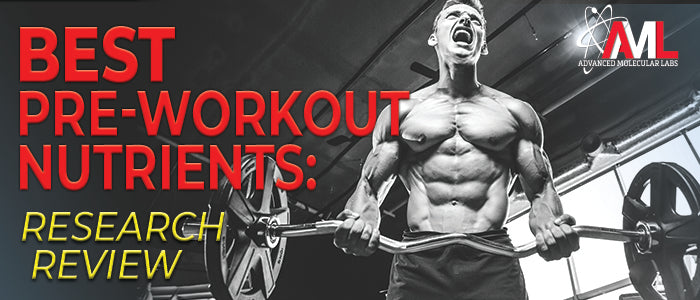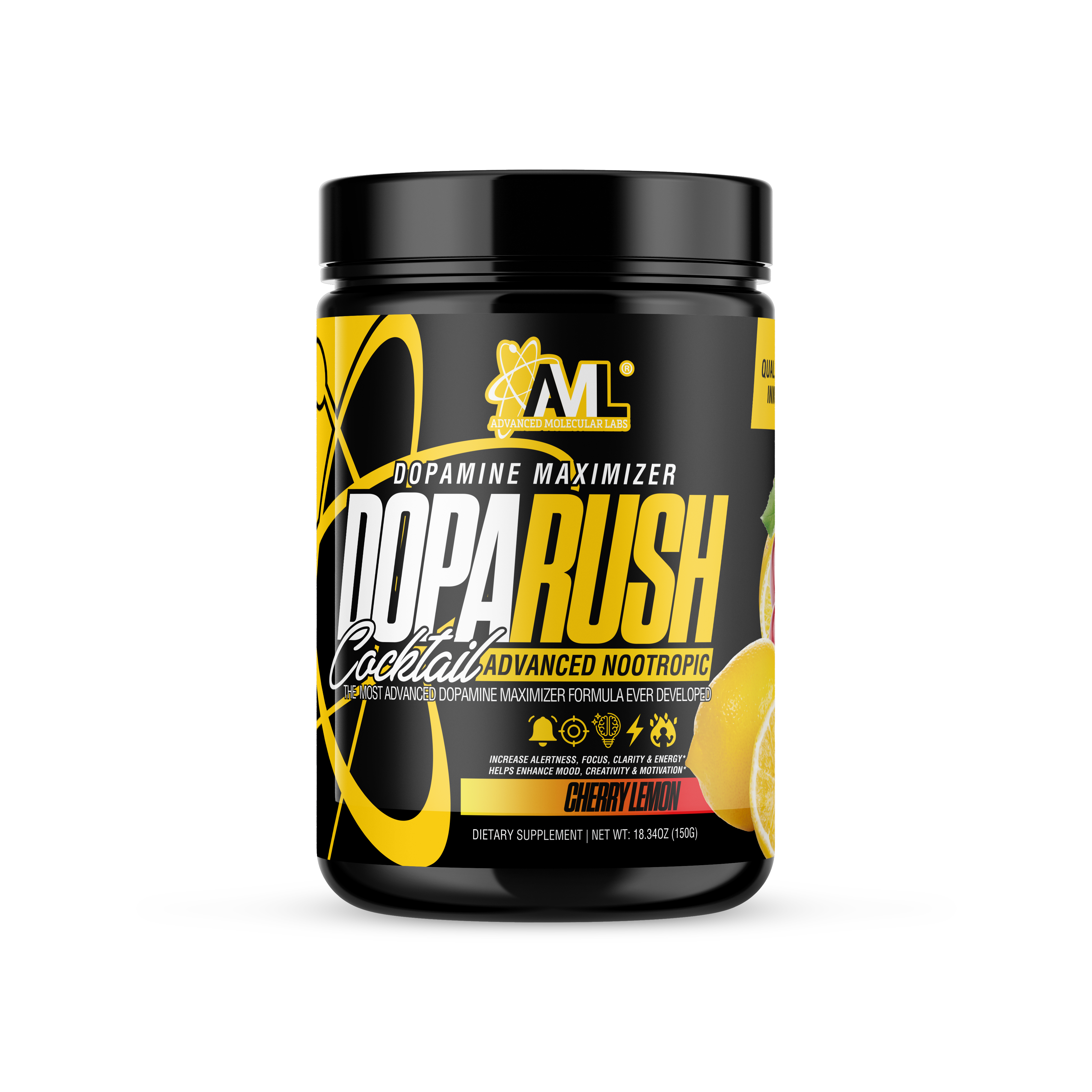


New Research On ADHD, Dopamine and Depression
By Robert Schinetsky
Attention Deficit Hyperactivity Disorder (ADHD) is the most commonly diagnosed and treated mental disorder during childhood, and it is rapidly increasing both in diagnoses and treatments in adults.[1,2] In fact, estimates indicate that up to 62% of ADHD-diagnosed children which are treated with prescription medications.[3]
The most common treatment for the disorder is the administration of various stimulants, such as Adderall or Ritalin.
While these substances are commonly prescribed, they’re not without their own drawbacks and adverse effects.
Anorexia (74.3%), irritability (57.1%), and insomnia (47.2%) are all noted to occur in children given ADHD medications.[4] Furthermore, tachycardia and hypertension are also noted side effects of chronic use of amphetamine-based medications and can damage the heart when used often over long periods of tim.[5]
Equally concerning (or perhaps more concerning) is the fact that ADHD medications are some of the most abused substances around. For evidence, just take a look around major tech hubs as well as college campuses (particularly during midterms and finals) and you’ll see they’re used (and sold) liberally.
This is concerning (aside from the obvious legal ramifications) because individuals using these medications without a prescription are at risk for serious complications.[6] They are classified as Schedule II controlled substances because of their strong addiction potential.

Panayotis (Peter) Thanos, PhD, senior research scientist at the University at Buffalo Research Institute on Addictions, senior researcher on the team, noted that ADHD medications can alter brain chemistry and these changes “were associated with serious concerns such as risk-taking behaviors, disruptions in the sleep/wake cycle and problematic weight loss.”[7]
In the same interview with ScienceDaily, Dr. Thanos remarked that “...people with ADHD show greater risk to be diagnosed with a drug dependency problem” and “In addition, this study highlights the potential long-range risks college students take in using Ritalin for a quick study boost.”[7]
Fortunately a growing body of research indicates that the need for various amphetamine-based medications may not be as necessary as it was once perceived. In fact, one of the most common (and heavily investigated) substances in the history of mankind may be effective for individuals with attention-related issues -- caffeine.
Caffeine is a stimulant with which a considerable portion of the population uses rather frequently, whether it be in the form of coffee, pre workout supplements, nootropics, energy drinks/shots, etc.
It is one of the most heavily researched compounds on the planet and has been shown time and again to over a wide range of benefits, including increased attention and retention capacity in adolescents and adults as well as learning, memory, and athletic performance.
Caffeine works via a few different mechanisms in the body, but the primary one is through the antagonism of adenosine receptors, which is a fancy way of stating that caffeine prevents adenosine from binding. This leads to increased feelings of alertness and decreased feelings of mental fatigue.
Caffeine also enhances dopamine actions in the body, and it has also been shown to beneficially impact acetylcholine (the “learning neurotransmitter”) and norepinephrine.
Dopamine functions to improve planning, decision-making and motor control, while norepinephrine improves alertness and readiness for action, among other functions.
The latest research on caffeine, published in Nutrients, indicates that the time-tested stimulant may be an effective means for improving symptoms associated with ADHD.[2]
Previous animal models of ADHD have found that caffeine consumption may:
- Increase attention span
- Improve concentration
- Offer learning benefits
- Enhance certain types of memory
The new systematic review included 13 animal studies and concluded that a regimented consumption of caffeine can increase attention and retention capacity in adolescents and adults suffering from ADHD.[2]
Specifically, the team of researchers noted that caffeine treatment “increases attention and improves learning, memory, and olfactory discrimination without altering blood pressure and body weight.”[2]
These findings become that much more important in light of the increased scrutiny drugstores are having on prescriptions for ADHD medications disseminated from various telehealth medical companies.
The Wall Street Journal reported in an article on April 28, 2022 that several of the nation’s largest pharmacies have blocked or delayed filling prescriptions for ADHD medications from certain telehealth services based on overprescribing the substances (which are lumped in the same category as cocaine).[8]
Coupled with the new systematic review, this highlights the need for more human research to be invested into caffeine and its potential applications for ADHD, both in children and adults.
New Findings on Dopamine & Depression
New findings published in the respected medical journal PLOS ONE find that using antidepressants is NOT associated with significantly greater health-related quality of life, compared to people with depression who do not take the drugs.[9
For those of you not aware, the American Psychiatric Association (APA) guideline typically recommends antidepressants, such as selective serotonin reuptake inhibitors (SSRIs) or serotonin-norepinephrine reuptake inhibitors (SNRIs), as the initial course of treatment (sometimes in combination is psychotherapy).

For individuals who do not respond or only demonstrate a marginal response to pharmacotherapy, the APA guideline recommends switching medications or employing cognitive therapy.
While serotonin-focused treatments are often considered the first avenue of “attack” for treatment, a growing body of evidence suggests that dopamine-focused routes may be more effective.
New research published in Cognitive, Affective, & Behavioral Neuroscience find that dopamine modulation could repair motivational deficits elicited by stress.[10]
Furthermore, the team of researchers noted that, based on their animal models, substances that act on the body’s dopamine system as opposed to ones that act on serotonin receptors offer greater benefit to those dealing with stress-induced anhedonia.
Something to keep in mind though with dopamine-enhancing compounds is that it isn’t enough to stimulate or increase dopamine levels in the body. It’s also imperative to replenish the requisite precursor substrates and co-factors involved in the biosynthesis of dopamine (tyrosine, folic acid, etc.).
DopaRush® is a natural, research-backed supplement developed by Advanced Molecular Labs (AML) that provides the key building blocks needed to support dopamine.†
†These statements have not been evaluated by the Food and Drug Administration.
These statements are not intended to diagnose, treat, cure or prevent any disease.
©Published by from Advanced Research Media, Inc. 2022
©Reprinted with permission from Advanced Research Media, Inc.
References
- Ferguson, J.H. National Institutes of Health Consensus Development Conference Statement: Diagnosis and treatment of attention-deficit/hyperactivity disorder (ADHD). J. Am. Acad. Child Adolesc. Psychiatry 2000, 39, 182–193.
- Vázquez, J.C.; Martin de la Torre, O.; López Palomé, J.; Redolar-Ripoll, D. Effects of Caffeine Consumption on Attention Deficit Hyperactivity Disorder (ADHD) Treatment: A Systematic Review of Animal Studies. Nutrients 2022, 14, 739. https://doi.org/10.3390/nu14040739
- Data and statistics about ADHD. (2020, November 16). https://www.cdc.gov/ncbddd/adhd/data.html
- Khajehpiri Z, Mahmoudi-Gharaei J, Faghihi T, Karimzadeh I, Khalili H, Mohammadi M. Adverse reactions of Methylphenidate in children with attention deficit-hyperactivity disorder: Report from a referral center. J Res Pharm Pract. 2014;3(4):130-136. doi:10.4103/2279-042X.145389
- Olfson M, Huang C, Gerhard T, Winterstein AG, Crystal S, Allison PD, et al. Stimulants and cardiovascular events in youth with attention-deficit/hyperactivity disorder. J Am Acad Child Adolesc Psychiatry. 2012;51:147–56
- Lisa S. Robison, Mala Ananth, Michael Hadjiargyrou, David E. Komatsu, Panayotis K. Thanos. Chronic oral methylphenidate treatment reversibly increases striatal dopamine transporter and dopamine type 1 receptor binding in rats. Journal of Neural Transmission, 2017; 124 (5): 655 DOI: 1007/s00702-017-1680-4
- University at Buffalo. "Nonprescription use of Ritalin linked to adverse side effects, study finds." ScienceDaily. ScienceDaily, 15 May 2017. <www.sciencedaily.com/releases/2017/05/170515154802.htm>.
- https://www.wsj.com/articles/walmart-cvs-pharmacies-have-blocked-or-delayed-telehealth-adderall-prescriptions-11651082131?mod=hp_lead_pos11
- Omar A. Almohammed, Abdulaziz A. Alsalem, Abdullah A. Almangour, Lama H. Alotaibi, Majed S. Al Yami, Leanne Lai. Antidepressants and health-related quality of life (HRQoL) for patients with depression: Analysis of the medical expenditure panel survey from the United States. PLOS ONE, 2022; 17 (4): e0265928 DOI: 1371/journal.pone.0265928









